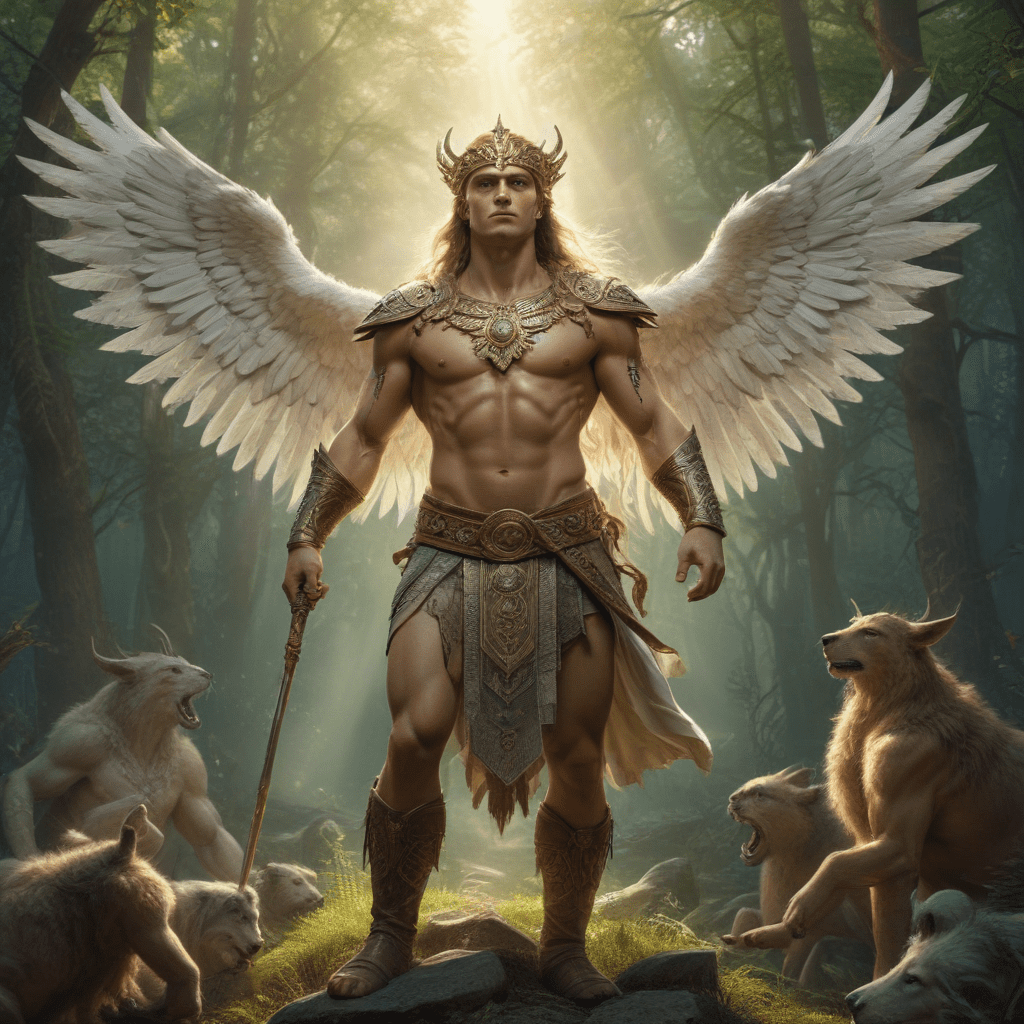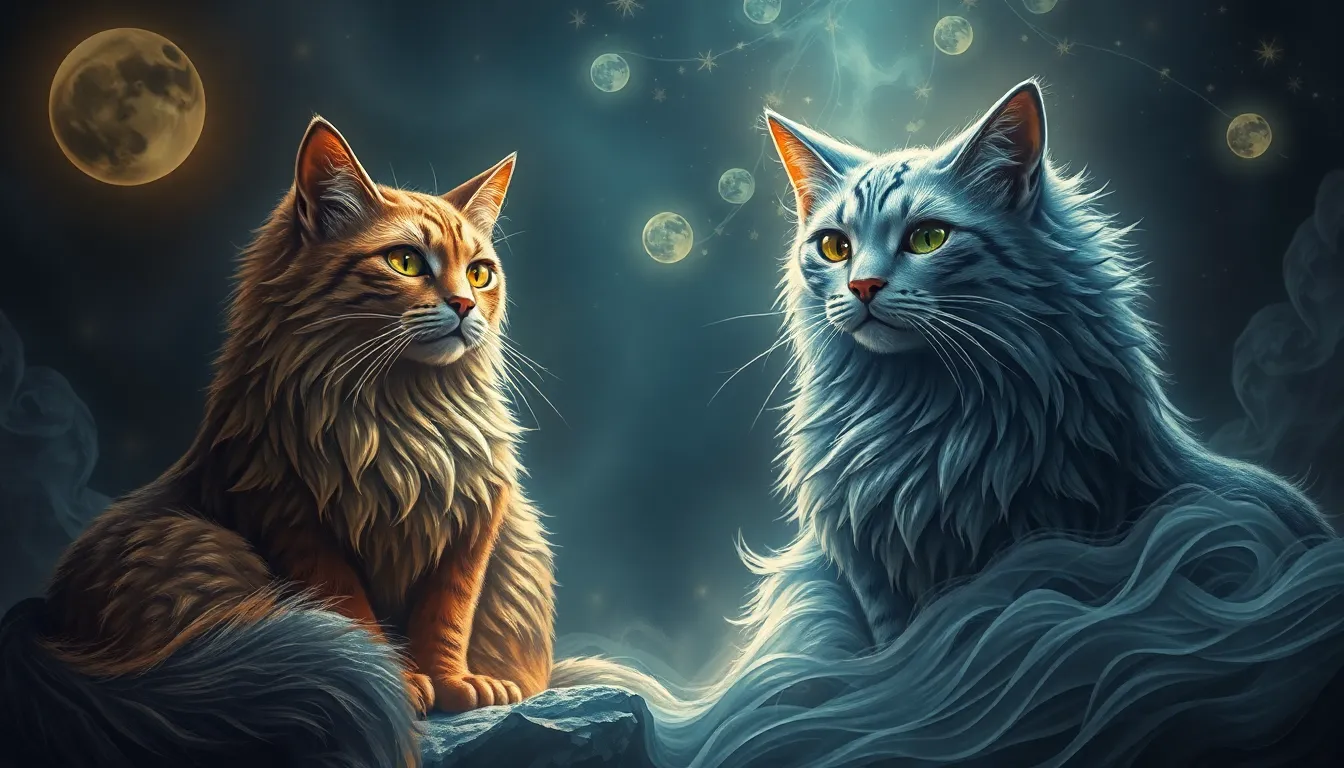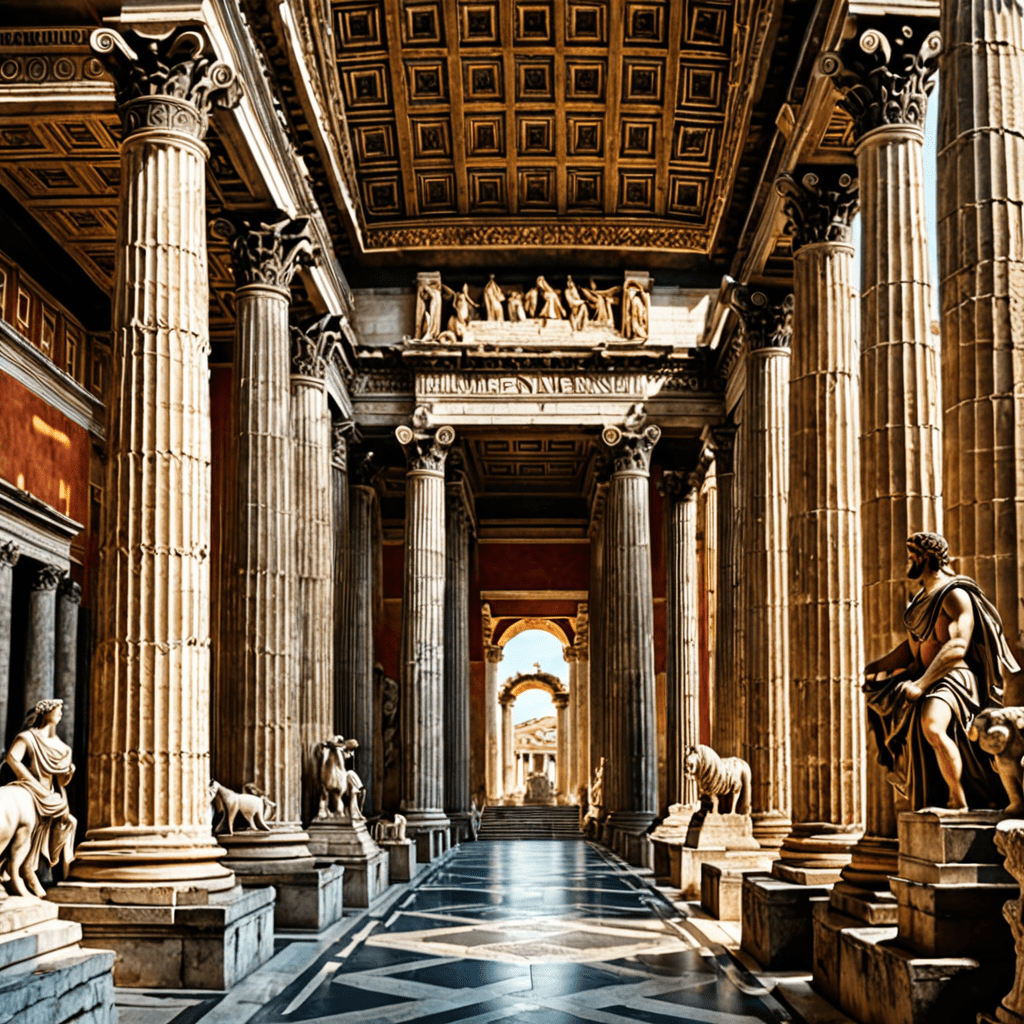Titans vs. Gods: The Ultimate Mythological Showdowns!
1. Introduction to Mythological Beings: Titans and Gods
In the rich tapestry of ancient mythology, Titans and gods occupy significant positions as primordial beings and divine entities, respectively. The Titans, often regarded as the elder gods, represent the raw forces of nature and the universe. In contrast, the Olympian gods symbolize the structured order of society and human experience. Their narratives not only provide insight into ancient cultures but also reflect universal themes of power, chaos, and order.
2. Origins of the Titans: Birth of the Primordial Beings
The Titans originated from the primordial deities, born from Gaia (Earth) and Uranus (Sky). This generation of beings was integral to the creation myths that shaped ancient Greek cosmology. The Titans ruled during the Golden Age, an era characterized by abundance and peace. Key figures among the Titans include:
- Cronus: The leader of the Titans, who overthrew his father Uranus.
- Oceanus: The Titan of the ocean, representing the vast and uncharted waters.
- Rhea: The mother of the Olympian gods, known for her nurturing nature.
Each Titan held dominion over specific aspects of the world, embodying the elemental forces that governed existence.
3. The Olympian Gods: Rise of the New Order
With the eventual overthrow of the Titans, the Olympian gods emerged, led by Zeus. This transition marked a significant shift in power dynamics, representing the triumph of order over chaos. The Olympians included notable deities such as:
- Zeus: The king of the gods and ruler of Mount Olympus.
- Poseidon: The god of the sea, earthquakes, and horses.
- Hades: The god of the underworld, overseeing the realm of the dead.
The Olympian gods established a new hierarchy, one that emphasized human-like traits and the importance of ethics and justice.
4. Iconic Showdowns: Key Battles Between Titans and Gods
The most significant conflict between the Titans and the Olympian gods is known as the Titanomachy. This epic war lasted ten years and showcased the struggle for supremacy between these powerful beings. Major battles included:
- The Battle of Mount Olympus: The Olympians, led by Zeus, fought against the Titans on the mountains, representing the clash of new order against the primordial chaos.
- Strategic Alliances: Some Titans, like Prometheus and Epimetheus, sided with the Olympians, indicating a divide within the Titan faction.
The outcome of the Titanomachy was a decisive victory for the Olympians, leading to the imprisonment of many Titans in Tartarus, a deep abyss used as a dungeon of torment.
5. Character Profiles: Notable Titans and Their Divine Opponents
Understanding the characters involved in these mythological narratives enhances our appreciation of their stories. Here are some notable Titans and their Olympian counterparts:
- Cronus vs. Zeus: Cronus, fearing a prophecy that he would be overthrown by his children, swallowed them at birth. Zeus, however, escaped and ultimately led the rebellion against him.
- Oceanus vs. Poseidon: While Oceanus represented the endless stream of the ocean, Poseidon became the god of the sea, embodying its capricious and destructive nature.
These character dynamics highlight the complex relationships and conflicts that defined their interactions.
6. Themes of Power and Rebellion in Mythology
The mythological narratives of Titans and gods encapsulate timeless themes of power struggles and rebellion. These themes resonate deeply within human nature, reflecting our own societal dynamics:
- Power Struggles: The constant battle for dominance mirrors political and social conflicts throughout history.
- Rebellion Against Authority: The overthrow of Cronus by Zeus symbolizes the quest for freedom and the rejection of tyrannical rule.
These themes not only entertain but also provoke thought on the nature of authority and the human condition.
7. Cultural Impact: Titans and Gods in Art and Literature
The influence of Titans and gods extends beyond ancient texts; they have inspired countless works of art and literature through the ages. Notable representations include:
- Classical Sculpture: Statues of gods and Titans adorned temples and public spaces, celebrating their grandeur.
- Literary Works: Epic poems like Hesiod’s “Theogony” and Homer’s “Iliad” explore their stories in depth.
In modern culture, these figures have permeated films, television shows, and literature, showcasing their enduring legacy.
8. Interpretations and Adaptations Across Different Cultures
Mythological figures akin to the Greek Titans and gods exist in various cultures. For instance, in Norse mythology, the giants represent chaotic forces, while the Aesir gods symbolize order. In Hindu mythology:
- Asuras vs. Devas: Similar to Titans and Olympians, these beings embody the struggle between chaos and order.
These parallels illustrate how different cultures interpret the battle between chaotic and ordered forces, emphasizing humanity’s fascination with such narratives.
9. The Legacy of the Titans vs. Gods in Contemporary Society
The stories of Titans and gods continue to resonate in contemporary society. Their narratives serve as metaphors for modern struggles, such as:
- Political Power: The conflicts symbolize ongoing debates about authority and governance.
- Social Rebellion: Movements against oppression echo the rebellion of the Olympians against the Titans.
The timeless themes of these myths remain relevant, offering lessons and reflections on our current world.
10. Conclusion: The Enduring Fascination with Mythological Conflicts
The narratives of Titans and gods provide rich ground for exploration of power, chaos, and order. Their enduring appeal lies in their ability to reflect human experiences and societal dynamics. As we delve into these mythological conflicts, we uncover not only the history of ancient civilizations but also insights into our own lives and collective consciousness.



